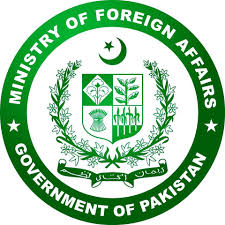Islamabad
13 October 2020 : Pakistan has been re-elected to the United Nations Human Rights Council (HRC) with an overwhelming majority securing 169 votes in the 193-member UN General Assembly. Elections were held in New York earlier today. Among the five candidates from the Asia-Pacific region vying for four seats, Pakistan secured the highest number of votes.
Pakistan is currently serving on the HRC since 1 January 2018. With its re-election today, Pakistan will continue as a member for another three-year term commencing on 1 January 2021. Since the HRC’s establishment in 2006, this is the fifth time that Pakistan has been elected to the United Nations’ premier body on Human Rights.
The international community has once again reposed confidence in Pakistan, recognizing our contribution to the national and global human rights agenda and strong credentials as a consensus builder in the HRC. Pakistan remains firmly committed to upholding, promoting and safeguarding human rights and fundamental freedoms for all. Pakistan will sustain its efforts towards ensuring that the HRC’s work is guided by the principles of universality, impartiality, dialogue and cooperation. In line with Pakistan’s commitment, we will prioritize advancement of tolerance, respect and constructive engagement in the HRC.
The HRC has been a prominent forum for discussing the gross and systematic human rights abuses being perpetrated in Indian Illegally Occupied Jammu and Kashmir (IIOJK). The human rights violations committed with impunity by the Indian occupation forces in IIOJK have been extensively documented in the various reports of the UN High Commissioner for Human Rights and the independent Special Procedure Mandate Holders. Pakistan will remain actively engaged with the Council as well as its related processes to continue to highlight the plight of Kashmiris and other oppressed people all over the world.
The Human Rights Council is an inter-governmental body based in Geneva within the United Nations system responsible for the promotion and protection of all human rights around the globe. It comprises 47 States and discusses all thematic human rights issues and specific situations requiring attention, such as those in IIOJK.

















